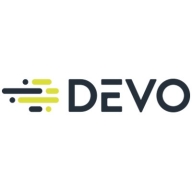

Devo and Nagios Log Server are competing in the log management solutions category. Devo offers more in terms of customer support and deployment, while Nagios provides robust features that balance its complexities for many users.
Features: Devo focuses on comprehensive analytics and scalability, providing deep insights into data. Its intuitive dashboard and high data ingestion rate also stand out. On the other hand, Nagios Log Server offers a modular architecture and lightweight installation, which allows for flexible implementations. Its real-time monitoring and customizable alerting options are also enticing to users.
Room for Improvement: Devo can enhance integration with third-party tools and streamline its user interface for better navigability. Users also suggest improvements in the granularity of permission management. For Nagios Log Server, better documentation is requested along with more intuitive setup guides. Enhanced automated troubleshooting features and a more modern user interface could also improve user experiences.
Ease of Deployment and Customer Service: Devo is known for its straightforward deployment process and responsive customer service, making it easier for teams to get started. Its clear onboarding process is a plus. Nagios Log Server, while offering extensive customization options, tends to be more complex to deploy. Feedback on customer assistance varies, with experiences often depending on technical proficiency.
Pricing and ROI: Devo is seen as more expensive upfront, yet its robust performance can deliver good ROI for comprehensive use. Users report mixed feelings on setup costs but acknowledge the value in extensive analytics capabilities. Nagios Log Server is perceived as cost-effective for specific functionalities, with lower license costs appealing to many. Its value is especially noted in smaller, tailored deployments where specific features meet user needs efficiently.
| Product | Market Share (%) |
|---|---|
| Devo | 0.8% |
| Nagios Log Server | 0.8% |
| Other | 98.4% |

| Company Size | Count |
|---|---|
| Small Business | 8 |
| Midsize Enterprise | 4 |
| Large Enterprise | 11 |
Devo is the only cloud-native logging and security analytics platform that releases the full potential of all your data to empower bold, confident action when it matters most. Only the Devo platform delivers the powerful combination of real-time visibility, high-performance analytics, scalability, multitenancy, and low TCO crucial for monitoring and securing business operations as enterprises accelerate their shift to the cloud.
Nagios Enterprises delivers official products, services, and solutions for and around Nagios – the industry standard in enterprise-grade IT infrastructure monitoring. With millions of users worldwide, Nagios is the undisputed champion in the IT monitoring space. Our team of dedicated professionals works to ensure total customer satisfaction with all the services we provide. Our extensive network of partners helps extend Nagios services and solutions to new organizations and markets worldwide to meet a variety of business needs. Nagios Enterprises was founded in 2007 by Ethan Galstad. Ethan created what would later become known as Nagios in 1999, and currently serves as the President of Nagios Enterprises.
We monitor all Log Management reviews to prevent fraudulent reviews and keep review quality high. We do not post reviews by company employees or direct competitors. We validate each review for authenticity via cross-reference with LinkedIn, and personal follow-up with the reviewer when necessary.